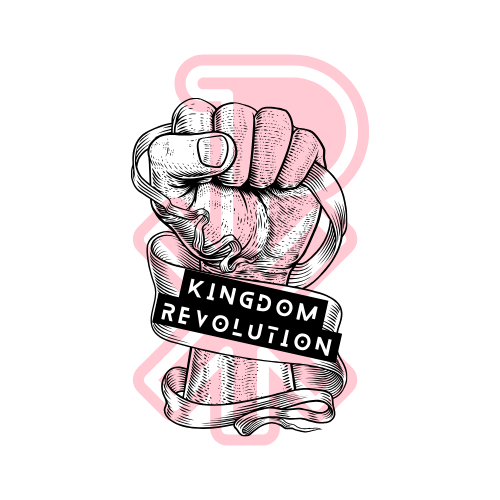
The Twelve Steps: A Powerful Tool
The Twelve Steps of Alcoholics Anonymous has been around for decades and has helped millions of people in their journey of recovery from addiction and compulsive behaviour towards some sort of stability and sometimes even complete remission. Studies have shown that the program of Alcoholics Anonymous is at the very least as effective as other forms of therapy (like Cognitive Behavioral Therapy and Motivational Enhancement Therapy), but for the most part seems to be more effective – leading to more alcoholics and addicts being abstinent for longer periods of time.
Widely misunderstood by the church, sometimes even completely dismissed, this program has a lot to offer as a therapeutic intervention but also as a support program for deliverance and pastoral ministries.
The program – all twelve steps – are built around a foundational belief that the only way you can kick your addiction is by submitting to a force greater than yourself.
When the program was started in the 1930’s there was no doubt that it was a Christian program. Although secularized in the name of inclusivity, the program remains true to concept and has a high success rate. Coupled with our hope in Christ, rather than an anonymous ‘higher power’, I have seen lives changed in ways I couldn’t even begin to explain.
It can be applied to any addiction – narcotics, alcohol, pornography, sex, gambling and shopping – or even compulsive behaviors and mental health issues.
It provides a simple set of guidelines that we can use as a road map on our healing journey from chaos back to order.
The Twelve Step Program is outlined in the book Alcoholics Anonymous (originally published in 1939). It is found at the beginning of the chapter “How It Works”.
The Twelve Steps are:
- We admitted we were powerless over alcohol — that our lives had become unmanageable.
- Came to believe that a Power greater than ourselves could restore us to sanity.
- Made a decision to turn our will and our lives over to the care of God as we understood Him.
- Made a searching and fearless moral inventory of ourselves.
- Admitted to God, to ourselves, and to another human being the exact nature of our wrongs.
- Were entirely ready to have God remove all these defects of character.
- Humbly asked Him to remove our shortcomings.
- Made a list of all persons we had harmed, and became willing to make amends to them all.
- Made direct amends to such people wherever possible, except when to do so would injure them or others.
- Continued to take personal inventory and when we were wrong promptly admitted it.
- Sought through prayer and meditation to improve our conscious contact with God as we understood Him, praying only for knowledge of His will for us and the power to carry that out.
- Having had a spiritual awakening as the result of these Steps, we tried to carry this message to alcoholics, and to practice these principles in all our affairs.
The program has a strong emphasis on prayer and fellowship – and the groups are free, with the only cost being your willingness to participate. The meetings are easy to find and listed online according to country, city and even suburb.
A final question I would like to answer here is whether or not Christians should attend these meetings. I have referred many addicts to these meetings, and some have been put off by the phrase ‘Higher Power’ or ‘God of your own understanding’. I want to urge you to not let this stand in your way. God wants us to be free.
Surely we don’t avoid taking crucial medication (like heart medication or insulin) because the prescribing doctor is a Muslim or a Jew? These meetings are a life-line for those struggling with addiction and I believe that the Divine Wisdom of God is there between the lines. For any Christian going through these kinds of issues I would suggest a two-pronged approach – throw yourself into fellowship at church, but also join one of these support groups. We need as much support as possible in this specific journey. If the secular side of these meetings really are an obstacle to you personally, please consider one of the Christian fellowships instead – but do not push it aside altogether.
As a Christian and a minister of the Gospel I believe that this is an invaluable tool for those suffering from addiction, but also for the families of those who are struggling with addiction to drugs or alcohol.
The thing that has kept me clean for nearly a decade at time of writing is something someone said at one of the early meetings I attended. Just before praying together we stood in a circle holding hands, and a fellow addict said: “we stand this way to remind ourselves that we never need to stand alone again unless we choose to…”
You are not alone. You don’t have to go through it alone.
There are Christian alternatives to the traditional AA, CA and NA meetings (eg. Celebrate Recovery), and I would urge you to find a support group near you – it saved my life. It can do the same for you.
If you would like help in deciding where to go or how to get sober – I am always just an email away. Reach out by sending me a message to andre@adlabuschagne.co.za.
God bless you and keep you. May He shine His face upon you and grant you the peace that you need today!
IF YOU OR A LOVED ONE ARE STRUGGLING WITH ADDICTION PLEASE REACH OUT: 065 370 3806 / ANDRE@ADLABUSCHAGNE.CO.ZA. #YOUARENOTALONE
